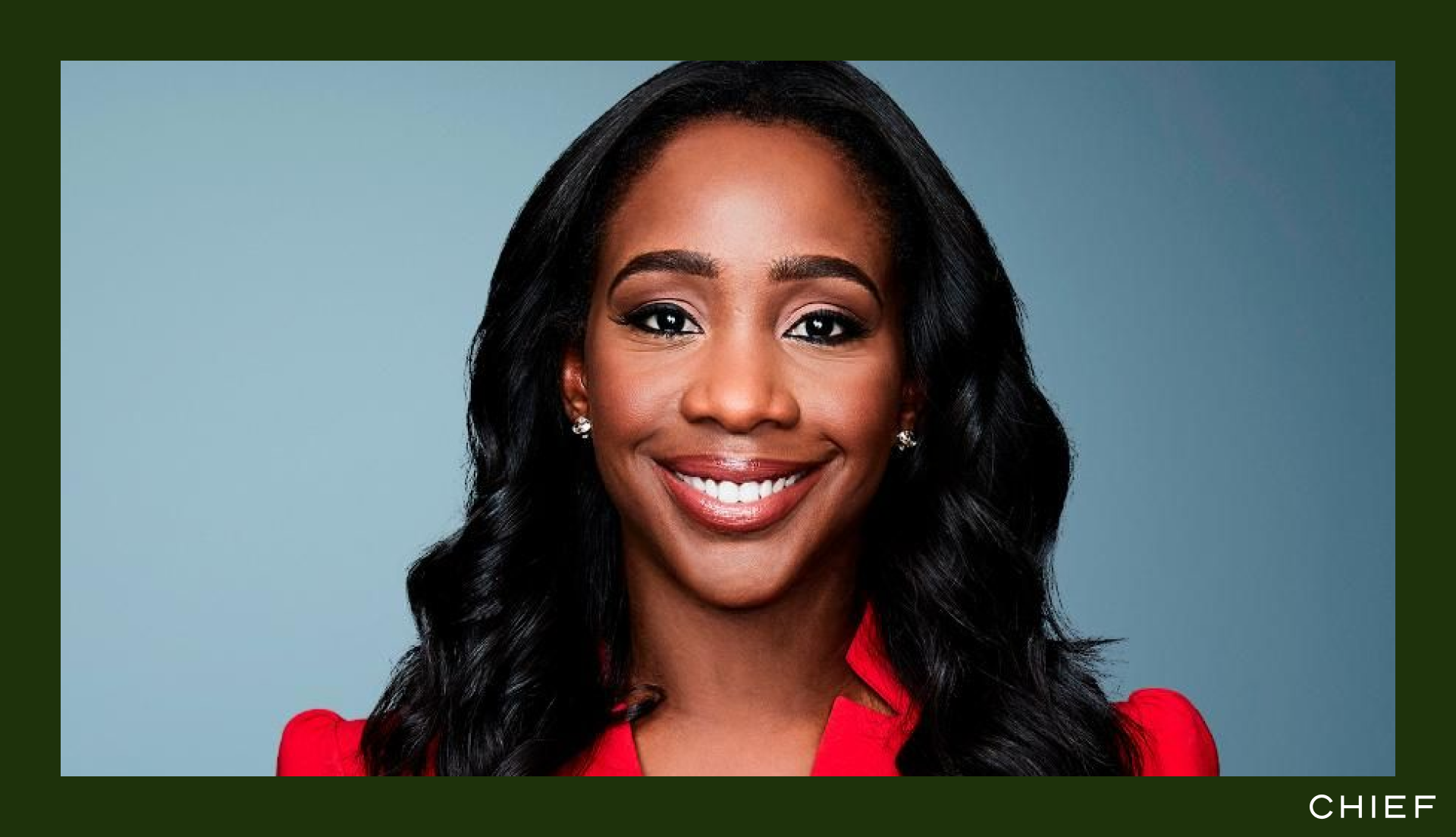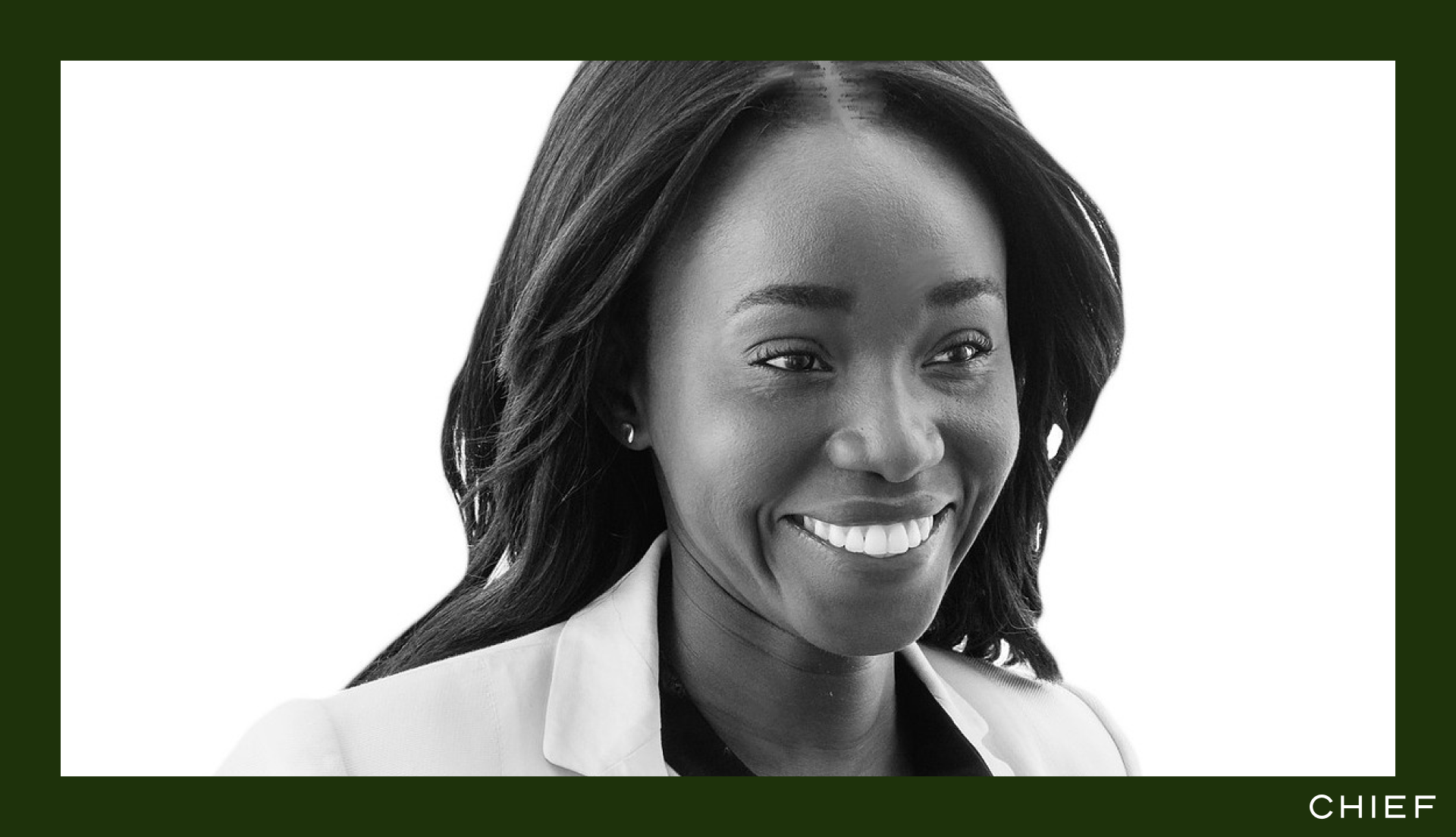As part of Chief's Future Forward speaker series, we had the privilege of welcoming CNN senior political correspondent Abby Phillip for a conversation with Chief Member and Emmy award-winning production executive Sharon Hoffman. Abby, who anchors CNN's Inside Politics Sunday, delivered unique insights while discussing her rising career in an industry that has long been dominated by the same voices.
On the moment that cemented her status as one of this election season's most influential voices:
AP: I knew that we needed to acknowledge the impact of Black women in this election cycle, especially knowing how much work had gone into turning Georgia blue. It needed to be said, and when you're sitting at that table, that's the chance you get. We were responding to history as it was unfolding, and I couldn't let the moment pass without acknowledging what was about to happen — which was that a Black and South Asian woman was about to be elected Vice President of the United States. And that could not have happened without the organizing power of Black women.
On redefining the principle of objectivity in journalism:
AP: We need to recognize that what we think of as objectivity is actually a default that prioritizes the views of certain people over the views of others. And people are learning that fighting against that principle is not about anti-whiteness. It's about bringing the viewpoints of other people to the table on an equal playing field. I think that's why people came to me during the election season: to give a different perspective rather than provide something obvious. And maybe it's the perspective that you don't often hear, because someone like me is not usually in a position to share it.
I often ask myself, who is not represented in the conversation that we're having? Whose perspective is not here? Because if you don't ask that, you end up with a default of objectivity that is exclusionary by definition. And it's not only in journalism. It's pervasive throughout the political system. Journalism is just reflecting what's happening in our halls of power.
On embracing discomfort to achieve career growth:
AP: I've had a lot of pivotal moments in my career where I've had a choice between staying where I was and taking a leap that made me extremely uncomfortable. Every single time I've taken the leap, and it has paid profound dividends in terms of my ability to do more than I ever thought possible. My story is an important lesson in letting life unfold and walking through open doors — even when you don't know where those doors are going to lead. It's also important to remember that it's not going to feel good every single day. But if you keep the end goal in front of you, perseverance will produce something greater than yourself. And if we all stick with it, we can change the paradigm in these industries where we all feel so lonely.
On paying it forward:
AP: It's hard to tell when you've arrived at that moment when you feel like you've made it and can now turn around and give back. It happens over time, and it can happen with people who aren't necessarily younger than you. Sometimes they're your peers or they're at similar places in their careers. But the work of lifting each other up is constant. Because wherever you are, you're always a little bit ahead of somebody else.
On encouraging women to be unapologetically ambitious, and making more room at the table:
AP: We need to redefine ambition in a way that is not about elbow throwing or staking out your turf, but about constantly improving and pushing yourself forward. That's how I see ambition. Not as competing with others, but about nurturing yourself from the inside. I want there to be a lot more people like me who are doing what I'm doing, because it shouldn't be that there's only one Black woman allowed to do this thing. We all can, and we can all be here at exactly the same time.

